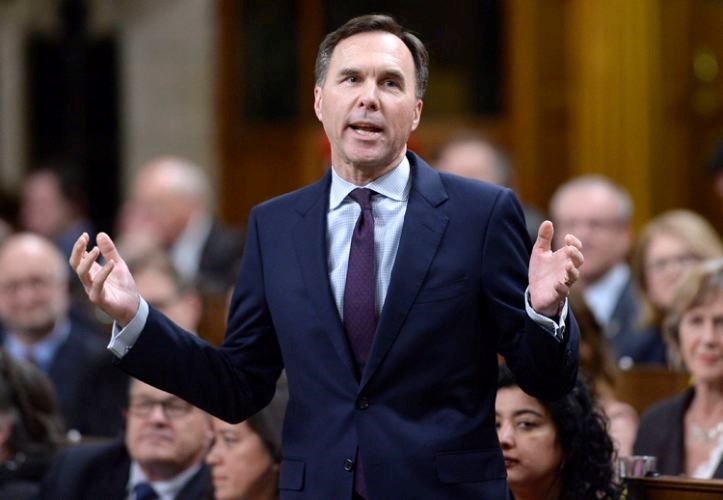Federal Finance Minister Bill Morneau tabled Budget 2018 in the House of Commons on Feb. 27.
The online version of the document is 369 pages long. It doesn't really get into any numbers until well into the document. Much of the document addresses gender and gender-issues.
Indeed, a Globe and Mail article on the budget points out the word "gender" appeared only twice in the Liberal's first budget compared to 358 times in the present document. It would appear this government is definitely trying to address the gender-gap.
There is much in the document which highlights the disparity in compensation and access to suitable employment. There are statistics on the number of small businesses with women as the majority owner (16 per cent) and female participation rates in management. There is an economic analysis which argues we could see a nine per cent increase in our GDP if we could get women participating fully in the labour force.
The whole budget is set against the lens of a "Gender Results Framework" which is applied to each of the remaining major foci in the plan. The government has put gender equality squarely in the middle of its plan for the coming year.
The document has five chapters. The first is about "Growth" - about how to grow our economy under the present circumstances. It is a curious mix of caution and optimism. While the government says we are not doing enough and we need to be cognizant, for example, of the low price we get for oil or our foreign trade balance, it also points to our lead in GDP growth among the G7 and our historic low unemployment rates as evidence we are doing very well.
A mixed message at best.
The one area of concern which echoes all the way through the budget document is trade. What is going to happen to NAFTA? What is going to happen to our other trading relationships? What impact will tariffs and duties have on our relationship with the United States?
It is hard to know and it is clear the government doesn't really provide any answers within the context of the budget document.
The second chapter addresses "Progress." It leads off with a significant investment in research funding, committing $4 billion in spending. Programs such as the Five Innovation Superclusters and the Innovative Canada Initiating will receive major boosts in funding. Some money will even flow to the granting councils - NSERC, CIHR, and SSHRC - to support basic research at universities.
The key message is to increase our capacity to innovate.
The third chapter is about "Reconciliation." This is long overdue but the question of how to address some of the core issues extend well beyond budgetary considerations. That said, Budget 2018 features "investments of more than $11.8 billion to help address areas of critical need in Indigenous communities, such as housing, child and family services, education, health care and access to clean drinking water."
Getting the physical infrastructure right is a first step but it is not the only step which needs to occur in the process of reconciliation.
The fourth chapter is entitled "Advancement" and is a bit of a catch all for a number of initiatives - a clean environment, social justice, global equity, etc. It starts with the environment and a commitment to ensuring nature is preserved. It goes on to address tools supporting Canada's Feminist International Assistance Program. And finishes with a commitment to a more inclusive sports system with gender equity in all sports by 2035.
The final chapter brings the discussion back to "Equality" stating: "Gender equality benefits us all. Women in the workforce have been one of the most powerful sources of economic growth in recent decades, helping strengthen the economy. In fact, over the last 40 years, more women in the workforce has accounted for about a third of Canada's real gross domestic product (GDP) per capita growth."
So, how much is all of this going to cost? The total for Budget 2018 is $311.3 billion dollars in expenditures with a forecast of $293.5 billion in revenue. The deficit will be $17.8 billion.
It is a lot of money but when building a better society, should we be counting the cost?



